how to prepare for chickens
Before you bring home your first baby chicks, be sure to read this article on how to prepare for chickens. Know what to have ready before your chickens arrive so you begin your chicken journey on a positive note.
Raising chickens begins when you decide to get started. Bookmark this article so you can ensure you have everything ready to go giving everyone a smoother transition.
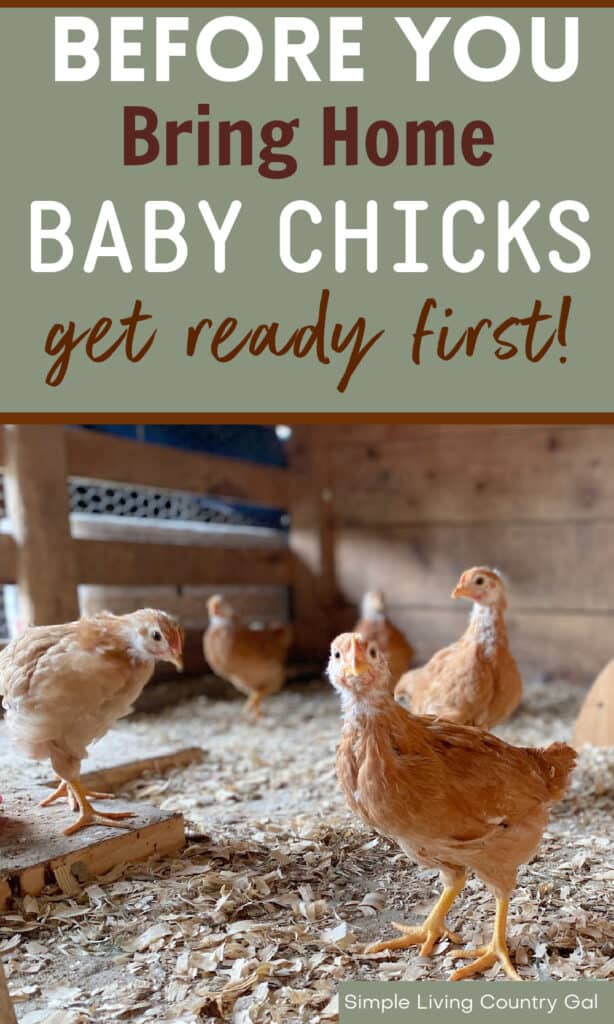
There is nothing better than a breakfast of eggs and toast on a weekend morning. Except maybe knowing the eggs you are eating came right from your own backyard.
Backyard chickens are a wonderful way to live a life that is more self-sufficient. When you can raise and grow the food you eat, it makes everything taste better.
But with anything new, there is a learning curve, and maybe you have questions you want answered before you go shopping for baby chicks. If so, you are in the right place. I hope to answer many, if not all, of your questions and give you a list of what you need to have so you can start raising healthy chickens from day one.
How to Prepare for Chickens
What you need to have for chickens is going to be different than what you need to have for baby chicks. In this article, we are going to talk about chickens specifically.
How to Prepare for Baby Chicks:
Housing for Chickens
Chickens require a safe and comfortable shelter to protect them from predators and shelter them from the harsh weather in your area. This shelter is called a chicken coop, and it should have enough room for the number of chickens in your flock.
A coop is where your chickens will sleep, eat, drink, take dust baths, and lay their eggs. With so much going on in such a small area, you will want to be sure you have things set up efficiently.
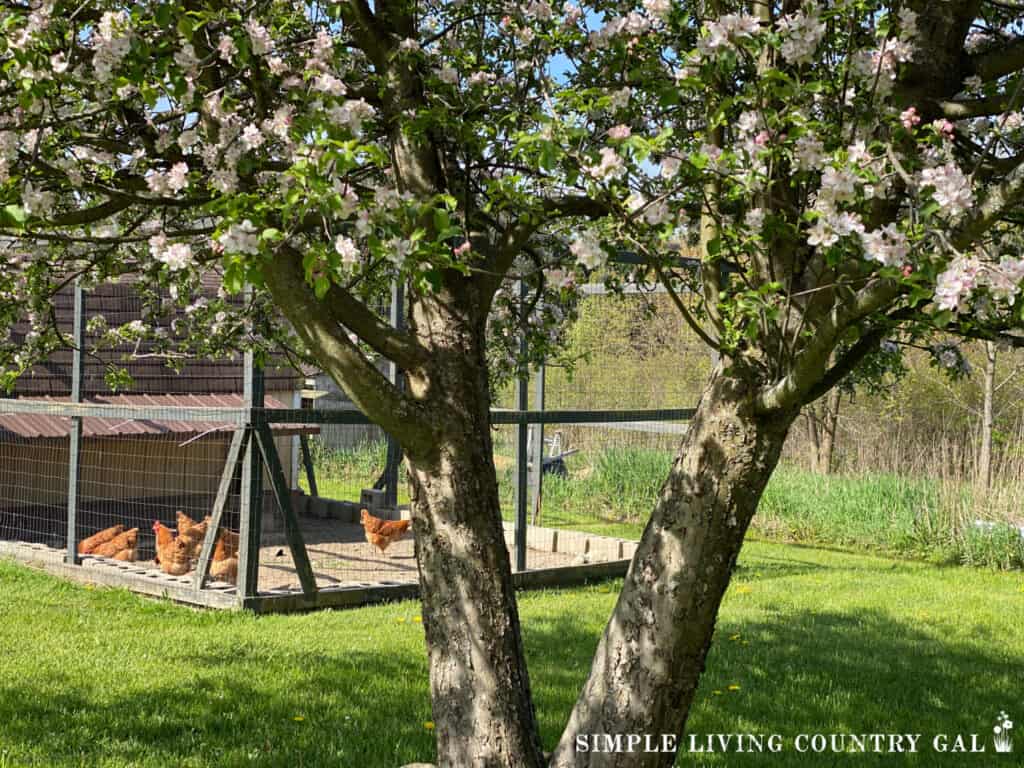
How much room do you need in a chicken coop?
You will want to have 3-4 square feet of space for each chicken in your flock with extra room in case you get more chickens later on. I would add 5-10 additional square footage to accommodate any additions you bring in later on.
What do you need to have inside a chicken coop?
- Nesting Boxes
- Chicken Roost
- Water and Food
- Dust Bath
Nesting Boxes
Chickens need a quiet and private space to lay their eggs; these are called nesting boxes. When choosing the style of box, be sure it is large enough to hold 1-2 birds at a time.
You will also want to choose a container that will keep the eggs protected, with little opportunity for them to fall out onto the ground. Finally, make sure your boxes are easy to clean. Cleaning is something you will need to do every month to ensure things stay clean for the eggs.
What can you use for nesting boxes?
- Milk crates
- Buckets
- Wood boxes
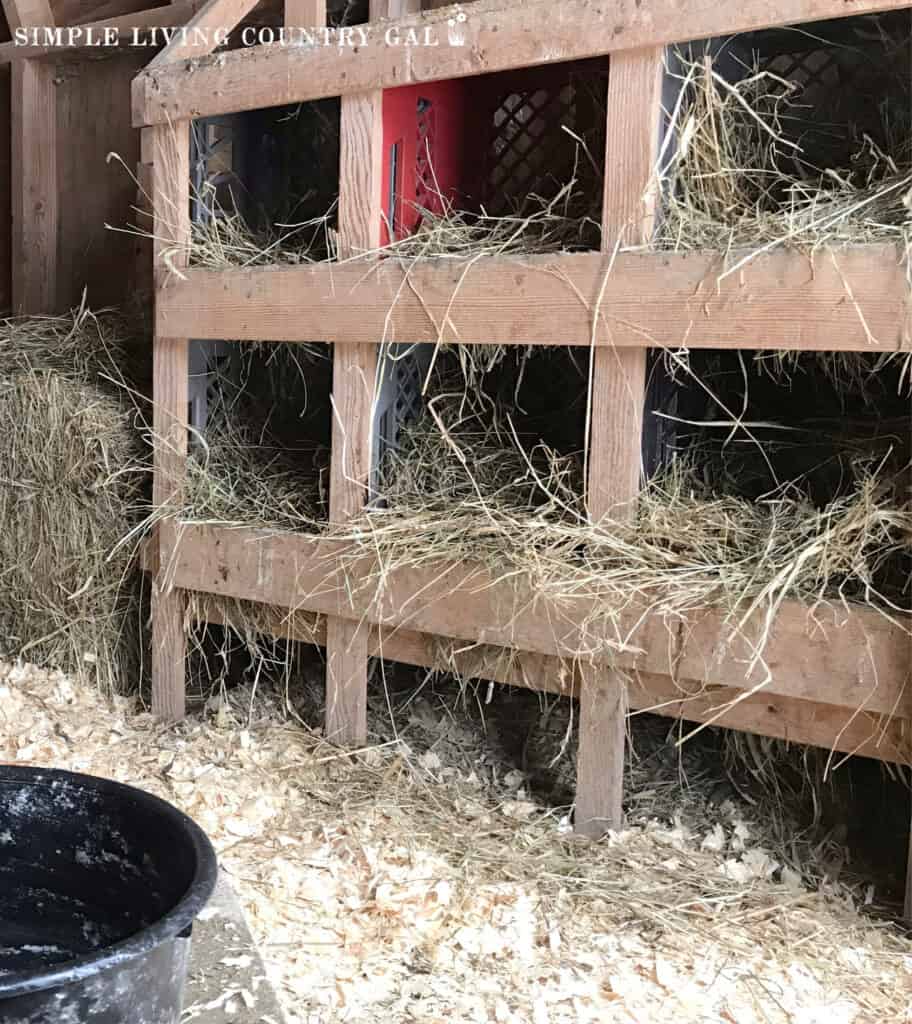
Chicken Roosts
Roosts are where chickens sleep at night. Since chickens have a hard time seeing in the dark, they like to be up off the ground where they feel safe and secure. Ladders are a common roost style and an easy one to add to your coop.
If you do not have a ladder, you can make a roost that resembles one. Be sure to have 10-12″ of space for each chicken in your flock.
Food
Chickens require a balanced diet made up of protein, carbohydrates, and essential vitamins and minerals. You can either purchase commercial chicken feed or make your feed using a combination of whole grains, legumes, and fruits and vegetables.
You can purchase a continuous feeder to ensure your chickens have access to food at all times. Use a chain to hand the feed from the ceiling aiming to be kneck level for your chickens. This will keep bedding and debris out of their food.
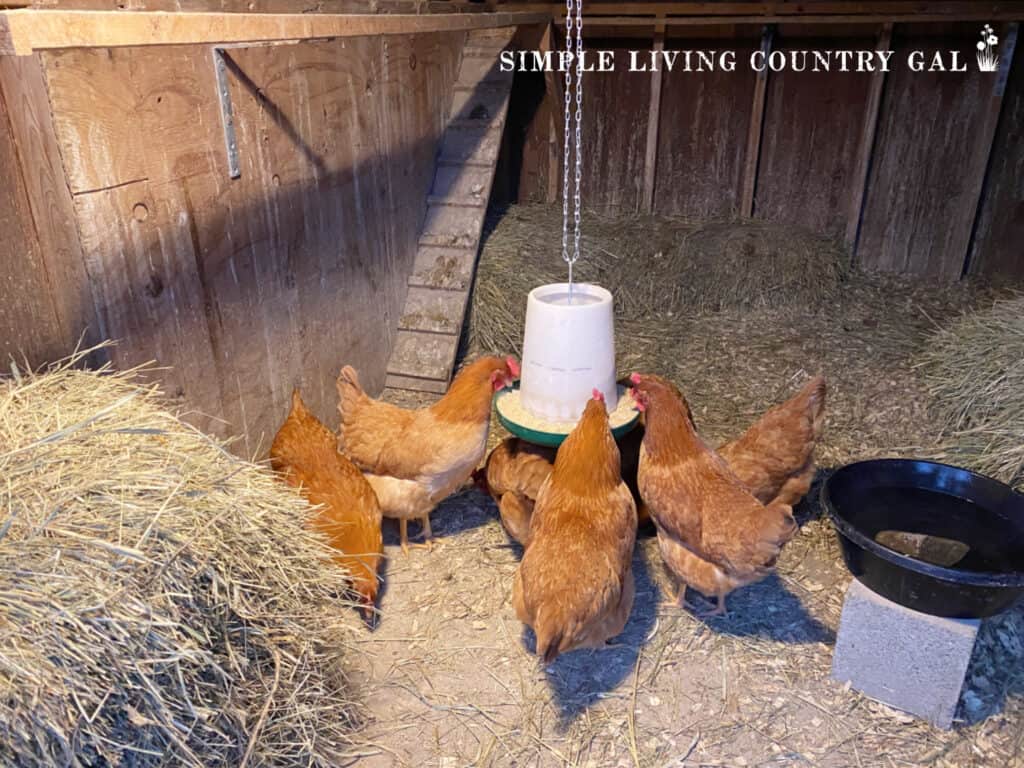
Water
One of the easiest ways to raise healthy animals is to ensure they have access to clean and fresh water at all times. Just like with their food, you can purchase a hanging waterer that will keep things neat and clean.
We prefer using a rubber feed bowl that we set up off the ground using a cinder block. This works better for us as the rubber is more durable to withstand the frigid cold winters in our area. Place a large clean rock inside to keep the bowl from tipping over.
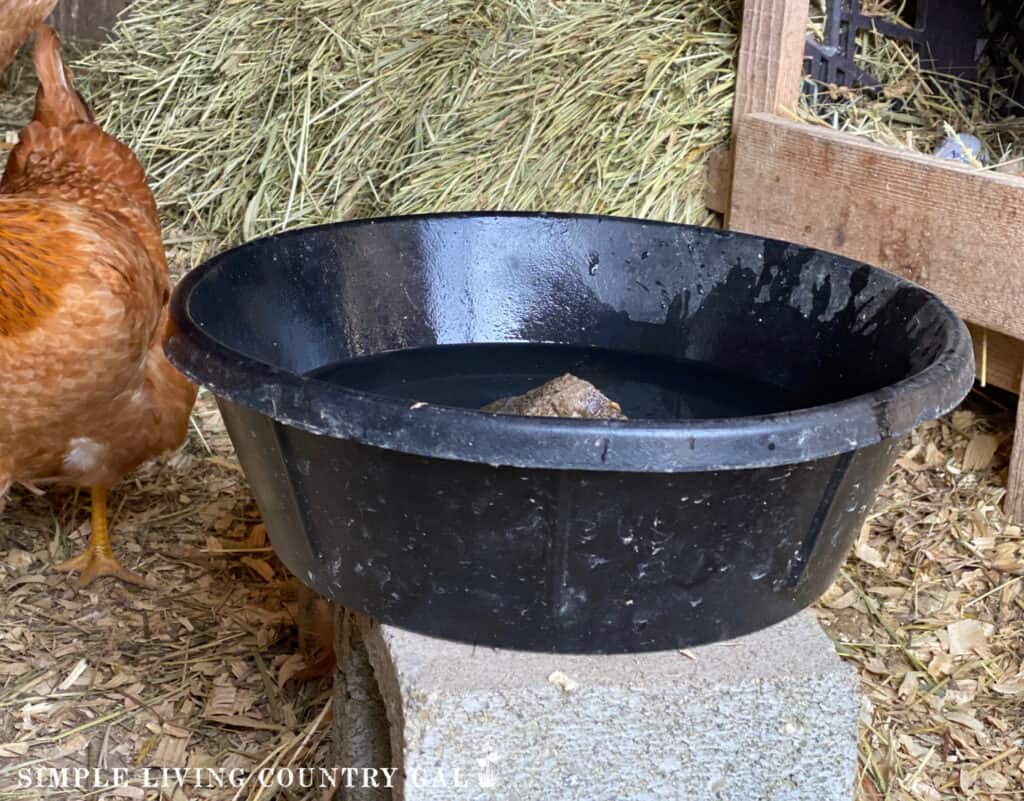
How often should the water be replaced in the chicken coop?
The water should be changed daily to ensure that it is clean and fresh.
Bedding
Bedding serves as a cushion between your chickens and the ground and also absorbs their droppings. Use natural and non-toxic materials like straw, wood shavings, sand, or sawdust to provide your chickens with a comfortable and sanitary environment.
Spot-clean the coop weekly and refresh the bedding. You can put the soiled bedding in your compost bin to use later on in your garden.
Every few months, do a full coop clean out from ceiling to floor. This will help to keep their coop cleaner and free of dust and amonia.
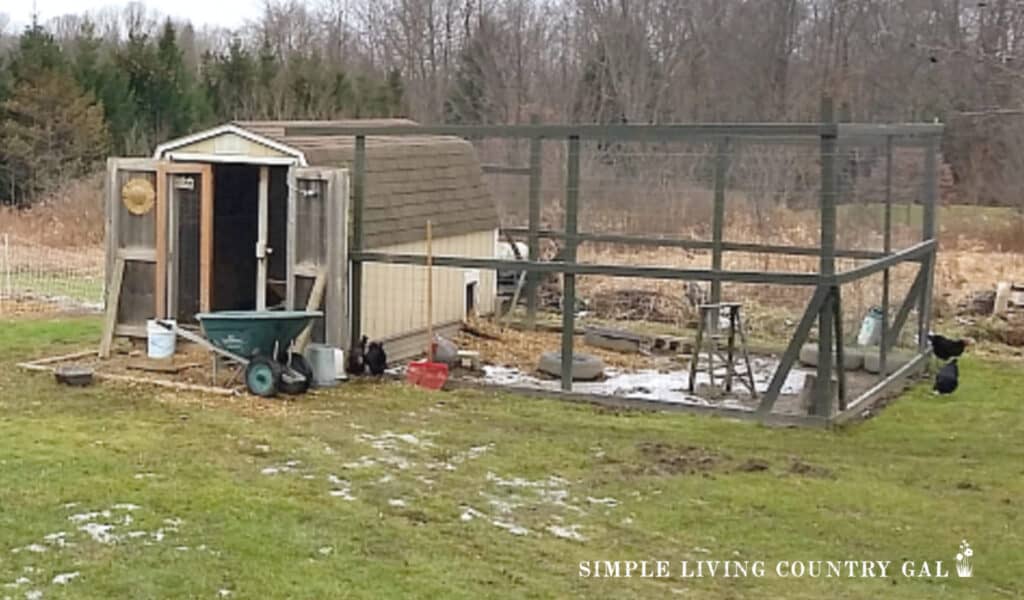
Coop Care Resources:
- DIY chicken coop all-purpose cleaner
- How to Deal With a Wet Chicken Run
- Homemade Chicken Coop Deodorizer
First Aid Care
Accidents and illnesses happen even with chickens. That means having the tools and medications to deal with them is important. Chickens tend to mask things so well that you may not notice there is an issue until things have progressed.
Know the signs, what tools to have on hand for treatment, and how you can care for not only one sick chicken but your entire flock.
Chicken Water Heater 15 in for 5 Gallons Chicken Drinker, 125W Poultry Waterer Heated Base with Thermostat and 9.8ft Power Cord for Metal Drinking Fountains Chicken Coop


What should be included in a basic first aid kit for chickens?
We like to have 2 kits for our chickens, one to handle any injuries or wounds and one to help when one or more of our chickens gets sick.
A basic first-aid kit should include:
- Antiseptic ointment
- Bandages
- Gauze
- Scissors
- Saline solution
Vetericyn Plus Dog Wound Care Spray | Healing Aid and Skin Repair, Clean Wounds, Relieve Dog Skin Allergies, Safe for All Animals. 16 ounces




A sick chicken kit should include:
- Vetericyn Plus Poultry Care Spray
- Apple cider vinegar
- Probiotics
- Electrolytes
- Asprin
- Epson salt
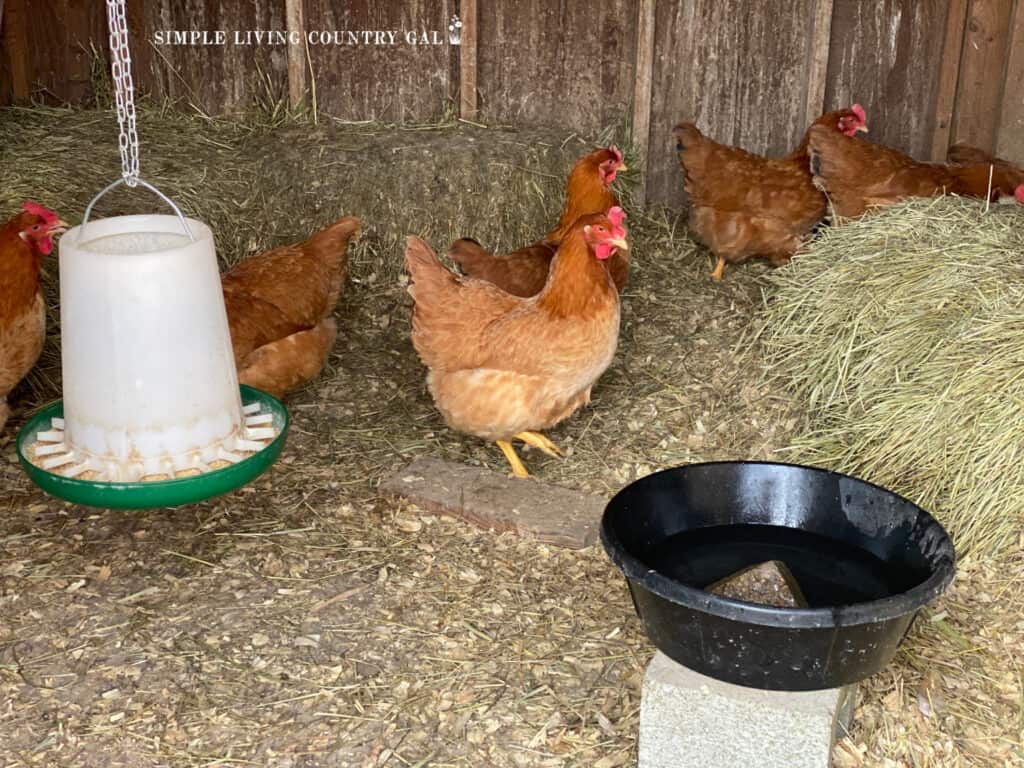
You will also want to have a dog crate or kennel to keep your sick or injured chickens in until they are healed and ready to return to the flock.
Keeping chickens is a rewarding and fulfilling experience, but it’s important to provide them with the care and attention they need to thrive. Always remember that happy and healthy chickens produce the best eggs and meat.
By following these tips on how to prepare for chickens, you can give your chickens the best possible life and ensure your journey as a chicken owner is successful. With some knowledge and patience, you’ll be well on your way to becoming a pro at chicken parenting.










